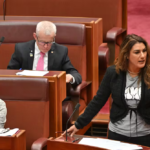Australia places four communities on the list of 21 to watch in 2014
It was noticeable that when this year’s 21 Intelligent Communities were chosen worldwide, four of them were Australian. Louis Zacharilla from the Intelligent Community Forum explains what it takes to become a model community for the future.
Last month I had the privilege of sitting down with Ching-Chih Liao, Deputy Secretary General for the city of Taichung, Taiwan. Madame Liao was at the Institute for the Study of the Intelligent Community, located on the campus of Walsh University in North Canton, Ohio (USA). She had flown over from Taiwan for our annual symposium and the evening’s big event, the naming of the 21 communities, each of which would like to be her successor. She was representing the reigning Intelligent Community of the Year, and I was interviewing her in front of 200 people wanting to figure out just how the heck Taichung did it.
Six months before, Taichung demonstrated to a group of critical academic analysts, a research company in India and an international panel of jurors that when all was said and done, Taichung was the model for the future and represented better than thousands of other places what it means to live in a community that has embraced Intelligent Community Forum principles. In short, Taichung is a place firing on all cylinders economically and socially.
Taichung’s 4.4% unemployment rate, the persistent achievements of its 23 universities and the knowledge they feed into the economic performance of key industries like precision machinery manufacturing and semi-conductors is not easily duplicated. However, the collaboration among the three players of its “Triple Helix” (local government, the academic sector and the private sector) is crucial for any place that aspires to become future proof.
Her talk with me and the showing of an extraordinary video from the same city that produced the Academy Award winning Life of Pi set the stage for the big event. I walked to the podium and announced the world’s 21 newest Intelligent Communities. A rapt audience of local people as well as international guests from places as distant as Uganda and Oulu, Finland watched as this list rolled across the screen.
What was noticeable was that four Australian communities, as well as six Canadian communities were on the list. While it is not unexpected for Canada to be represented (few nations have embraced the concept of Intelligent Community development more than Canada or Taiwan (which added three to this year’s list), Australia’s strong contribution surprised some. However, if people have been paying attention they know that Stephen Conroy led a charge to ensure that this sort of performance would become more commonplace than curiosity.
An assessment of Australia’s four Intelligent Communities (Coffs Harbour, Prospect, Sunshine Coast and Whittlesea) suggests that while Australia’s National Broadband Network has begun to do what it should do, there is still an aspirational quality to these new Intelligent Communities. This is a very good thing, because our analysts often guide their decisions, at this phase, by how far a community has moved towards solving its challenges. Coffs Harbour, for example, is collaborating with local Southern Cross University and CSIRO to study the impact of the new broadband regime on economic and social growth. It has been moving toward Intelligent Community activities for over 10 years and is finally seeing strong progress. It often takes this long to build a community for the 21st Century.
Also of note from the new 21 is the emergence of several rural communities playing their “quality of life card.” Walla Walla, Washington (USA) is one example. In my view this is where the real global change will occur. The renaissance of the rural sector is like a lung being restored to a body. It can now more adequately support the other lung (the urban) in our attempt to keep our communities and our societies in balance. That is why we have established our Rural Imperative program to assist this renaissance.
On January 23, 2014 in Taichung, seven communities from this list will be named as the new Top 7. The 14 “winners” that do not advance in the Awards program retain their designation as Intelligent Communities. Each will become part of a global working group through the ICF Foundation. All of them will continue to develop, promote best practice and if the past is an indicator, will find the world takes notice of their accomplishments.
Louis Zacharilla is a social entrepreneur who is credited with initiating the global Intelligent Community movement. As the Co-Founder of the New York-based Intelligent Community Forum, a global think tank and foundation which studies “energized communities” for the new century. He helps community thought leaders to understand and implement the best practices of the world’s leading communities. For more information visit www.intelligentcommunity.org.













